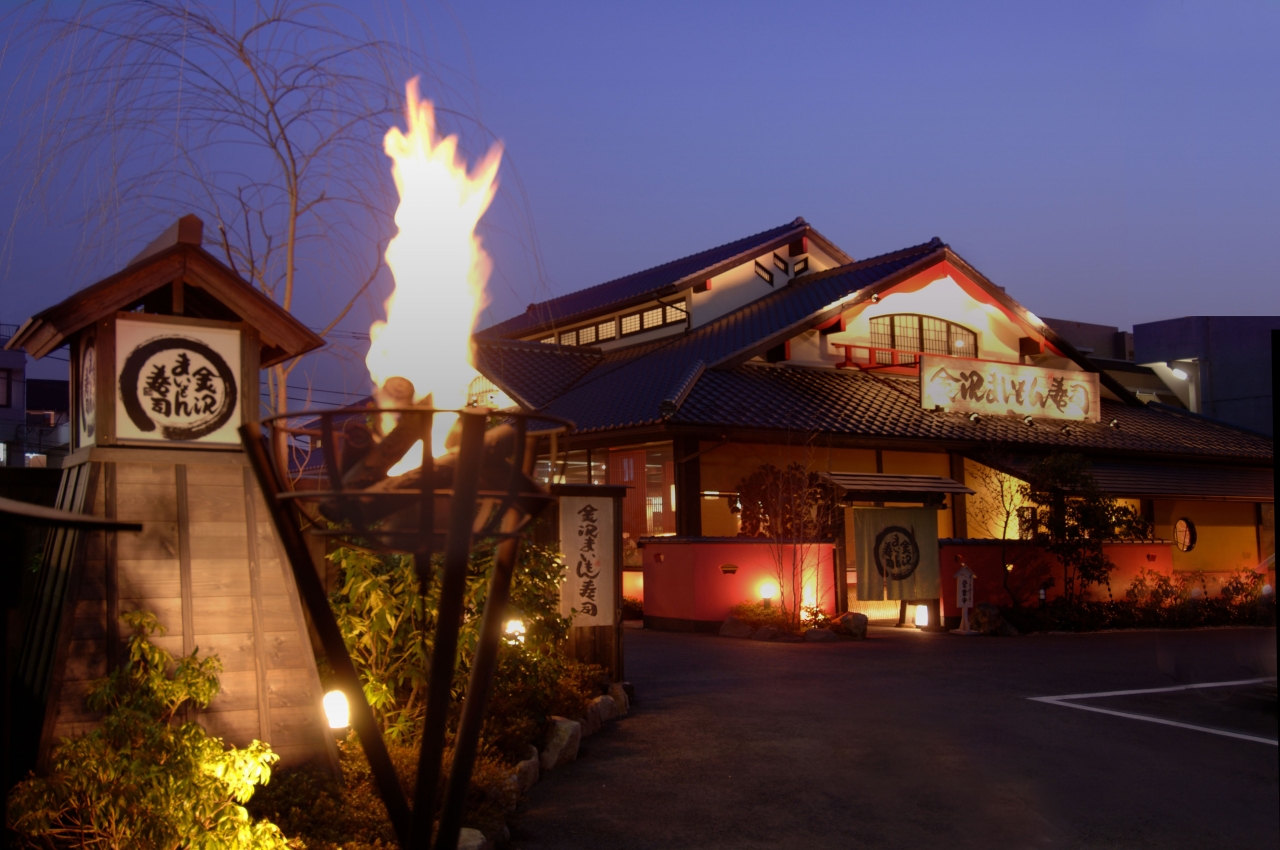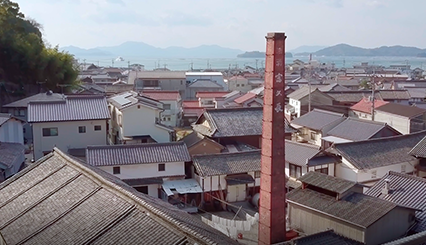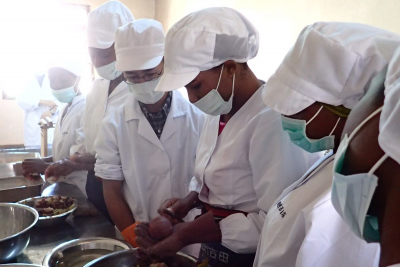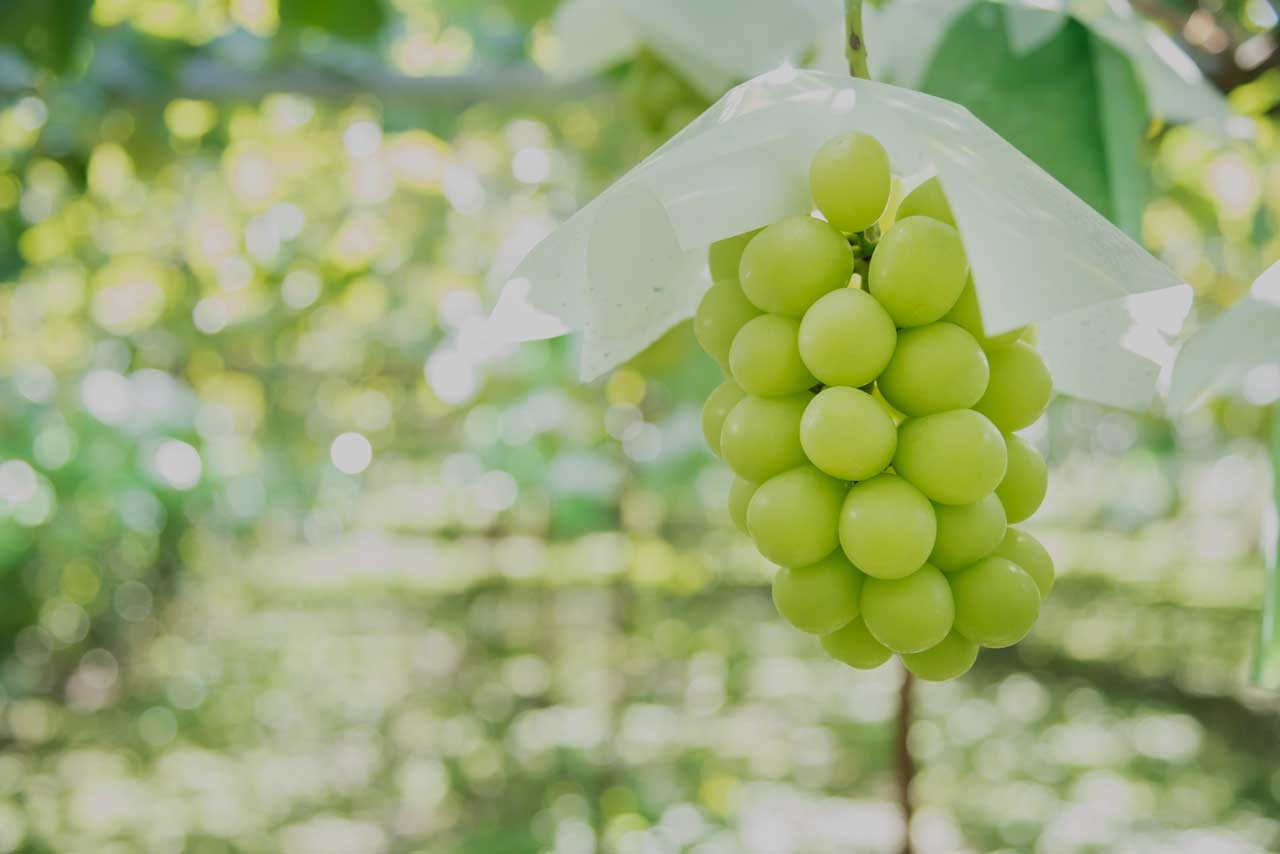CASE STUDY
Search by area
Search by keyword
- All
- Ryotei & Restaurants
- Lodging/Hotels
- Producers
- Technology
- DX (Digital) & SNS
- City Planning
- Utilization
- Gastronomy and Culinary
- Japanese Nature
- Japanese history and traditional culture
- Japanese Food Culture
- Agriculture
- Fisheries
- SDGs
- Local production for local consumption
- Foreigner Activation
- Experience
- Overseas Expansion
- Fermentation
- Public-private partnerships and collaborations
- Sake
- Community Revitalization
- Spirituality
- Japan of the Sea
- Mountain Japan
VIEW ALL
-

Hokuriku
16 SUSHI×TECHNOLOGY Pioneering the Future of Food Culture from Kanazawa.
Kanazawa City in Ishikawa Prefecture in Japan’s Hokuriku area is known for Kenroku-en Garden, Kanazawa Castle, and the Nagamachi Samurai District, all of which are steeped in the history and culture of the expansive former Kaga domain; as well as magnificent food culture that incorporates the delights of the Sea of Japan. Kanazawa Maimon Sushi was first launched in Kanazawa City in 2000. Extremely popular as a high-quality, gourmet kaitenzushi (conveyor-belt sushi) restaurant, Kanazawa Maimon Sushi has attracted a lot of media attention. M&K Corporation is the restaurant’s managing company, and using Kanazawa as its platform, it is currently working to expand the potential of sushi worldwide as a central element of Japan’s food culture. Kanazawa Maimon Sushi has in place a unique strategy for the future of sushi—this has the potential to impact significantly on food not only in Japan, but around the world.
Read more -

Chugoku
12 Diverse Flavors Brewed by a Fourth Generation Female Master Brewer Carrying the Traditions and Techniques of the Hiroshima-toji into the Future
The town of Akitsu is home to the Hiroshima-toji, a guild of master brewers. Facing the Seto Inland Sea, the town flourished as a port for the shipment of sake rice from the Hiroshima domain during the Edo period. Here one can find Imada Shuzo Honten sake brewery run by master brewer Miho Imada. Imada was the only Japanese on the list of the BBC 100 Women 2020, which showcases women who influenced the world. She was awarded because of working in the world of sake brewing, which has traditionally been a male-dominated society, and continued promoting the appeals of sake to the world, exporting 30% of its production despite being a small brewery. Today, Imada continues to bring the fascination of sake to the world with stories of the Hiroshima-toji. She has created unique tastes such as Fukucho, which is made from Hattanso, an oldest sake rice revived by Imada and have not been produced for more than a century; Seafood, sake with lemon-like acidity designed to be paired with oysters; and Legacy, sake that is used ginjo sake made by previous generations of master brewers, instead of brewing water.
Read more -

Overseas
10 Developing a Dried Sweet Potato Export Business in Africa
Recently, dried sweet potatoes have again grown in popularity for their simple, delicious taste and their benefits as a health food. With a history that can be traced back to the Edo period, techniques for the production of dried sweet potatoes have existed for around 200 years. Matoborwa, a company established in Tanzania in East Africa, is currently hard at work to create a new dried sweet potato export business. It is doing so with support from Terunuma, a long-standing sweet potato store from Ibaraki Prefecture. Key to the project’s success is the introduction of the Tamayutaka sweet potato variety from Japan—optimally suited to the production of dried sweet potatoes—and the creation of a collaborative cultivation system with local contracted farmers. Despite the long distance between Japan and Tanzania and their two varying dried sweet potato cultures, both are working together to launch a new business. Below, we hear from Matoborwa representative Tatsuo Hasegawa about agribusinesses and food processing businesses in Africa, the background to this new venture, and its future possibilities.
Read more -

Kita-Kanto
6 Year-long Grape Production in the Northern and Southern Hemispheres to Transform Japanese Agriculture and Create New Lifestyles
Japanese fruits are world-renowned for their high quality. Behind the scenes, however, the fruit industry in Japan is facing numerous challenges, such as the aging and ensuing decline in number of producers and the rise in competition with other countries. GREENCOLLAR, an in-house venture company from Mitsui Fudosan, was established in 2019 as part of Mitsui Fudosan group’s new business proposal system, MAG!C. GREENCOLLAR’s business is to cultivate Japanese table grapes in Japan and New Zealand, two countries with opposite seasons, and to sell them around the world. In addition to tackling social challenges through its business, GREENCOLLAR is proposing a completely new lifestyle that is neither white collar nor blue collar, but “green collar”.
Read more
記事検索
キーワードから探す
- すべて
- Ryotei & Restaurants
- Lodging/Hotels
- Producers
- Technology
- DX (Digital) & SNS
- City Planning
- Utilization
- Gastronomy and Culinary
- Japanese Nature
- Japanese history and traditional culture
- Japanese Food Culture
- Agriculture
- Fisheries
- SDGs
- Local production for local consumption
- Foreigner Activation
- Experience
- Overseas Expansion
- Fermentation
- Public-private partnerships and collaborations
- Sake
- Community Revitalization
- Spirituality
- Japan of the Sea
- Mountain Japan
VIEW ALL

